Central Asia is India’s extended neighbour and a geo-strategically vital region. India’s relations with this region go back for centuries, and are based on commercial, cultural, and civilizational links. In June 2017, India received full membership of the Shanghai Cooperation Organization (SCO), which has given India a fresh opportunity to engage with this region.
Strategic location of the Central Asian Republics (CARs) makes them potential bridge between the Asia and Europe, and between various regions of Asia. Russia has traditionally acted as the Security Provider in the CARs. It continues to play pivotal role through organizations like Eurasian Economic Union (EEU) and Collective Security Treaty Organization (CSTO). In recent years, China has enhanced its presence in the region mainly through infrastructure projects, pipelines, trade and investments. The CARs factor significantly in the Belt and Road Initiative (BRI).
2017 proved to be a remarkable year for Central Asia, for domestic environment in CARs, intra-CARs relations as well as their engagements with the world.
Major Events in CARs in 2017
Two of the five CARs, namely Kyrgyzstan and Turkmenistan, witnessed national elections in 2017. Former Kyrgyz Prime Minister Soroonbay Jeenbekov was elected as the new President on 15 October. It was country’s first peaceful transition of power from one popularly elected president to the other, after undergoing two violent revolutions (2005 and 2010). As per the constitutional provision that restricts the President to only one term, incumbent President Atamirat Atambayev was ineligible to contest these elections. Thus, he had supported Jeenbekov’s candidature, who received 54 percent of total votes polled.
In Turkmenistan, President Gurbanguli Berdimuhamedov was re-elected to power in the national election on 12 February 2017. He received 97 percent of the total votes casted in the election. Berdimuhamedov has ruled the country since 2006, following the death of first President Saparmurat Niyazov. These elections put him in office for the third consecutive term. Number of presidential terms and age limit was relaxed prior to election, making it possible for Berdimuhamedov to contest for yet another term.
Apart from elections in two CARs, 2017 was an important year for Uzbekistan’s President Shavkat Mirziyoyev, who was elected to office in December 2016 after the sudden demise of First President Islam Karimov. In February, Mirziyoyev signed a decree on Development Strategy of Actions in five Priority Areas for 2017-2021. In last one year, he has introduced number of key reforms aimed at modernization of public administration and judicial system, and liberalization of the economy. Uzbek currency ‘Sum’ was made freely convertible, which was a path-breaking step giving serious blow to the black economy.
Foreign Policy
Since coming to power, President Mirziyoyev of Uzbekistan has tried to improve relations with the CARs and Afghanistan. There have been number of high-level visits, meetings on the sidelines of the international summits and telephonic exchanges, between Presidents of Uzbekistan and its neighbors. This has led to significant improvement in trade and connectivity within the CARs. In first nine months of 2017, trade between Uzbekistan and Kazakhstan increased by about 30 percent; and that with Kyrgyzstan by about 60 percent. Highest point of the Uzbek-Kyrgyz relationship was Agreement on Delimitation of the state border, which was an unresolved issue since independence. President Ghani’s visit to Tashkent in December 2017 resulted in signing of 20 agreements between Uzbekistan and Afghanistan in fields of trade, transit, security, electricity and education. President Mirziyoyev’s activism has led to creation of favorable environment for regional cooperation.
On the other hand, Kazakhstan made its mark on several multi-lateral platforms. It assumed the Non-Permanent Membership (NPM) of the United Nations Security Council (UNSC) in January 2017. It has become the first CARs to join the apex body. As a leading initiator of peaceful settlement of international disputes, Kazakhstan hosted rounds of ‘International Meeting on Syrian Settlement’, which was attended by government and opposition forces from Syria, and representatives from the UN, Russia, Turkey and Iran. This year, Astana also hosted chain of events including SCO Summit, Expo 2017, Organization of Islamic Countries (OIC) Summit on Science and Technology, and 25th anniversary celebration of the Conference of Interaction and Confidence-Building Measures in Asia (CICA).
Connectivity Initiatives
The year 2017 was remarkable in development of several land, rail, air and energy connectivity projects in the Eurasian region. Some of these are listed below:
1. Direct passenger flights were started between Tashkent- Dushanbe (after 25 years) and between Tashkent- Kabul (for the first time). Air connectivity increased within CARs and with the outside world, in qualitative as well as quantitative terms.
2. Baku-Tbilisi-Kars (B-T-K) Railway was inaugurated in October, as part of the Trans-Caspian International Transport Corridor. Considered to be the shortest link connecting Europe and Asia, B-T-K is an important leg in the southern section of the Silk Road Economic Belt (SREB).
3. Agreement on Lapis Lazuli Transport and Trade Corridor was signed in Ashgabat in November, between Afghanistan, Turkmenistan, Azerbaijan, Georgia and Turkey. This multi-modal transport network shall potentially be the quickest connection between Asia and Europe.
4. Projects under the BRI are making fast advances, including the Uzbekistan-Kyrgyzstan-China railway and automobile corridor and fourth energy pipeline from CARs to China. Presidents of Kazakhstan, Kyrgyzstan and Uzbekistan participated in the BRI Forum in Beijing in May 2017. China remains the largest trading partner and largest source of investments in the CARs.
India’s Engagements in Central Asia
In recent years, India has tried to enhance its engagements in the CARs, which was evident from announcement of ‘Connect Central Asia’ policy in 2012 and Prime Minister Modi’s ‘first of the kind’ visit to all five CARs in July 2015. These Republics are vital in India’s connectivity projects in Eurasia, like International North South Transport Corridor (INSTC) and the Chabahar Port Agreement. India’s planned accession to the Ashgabat Agreement is also crucial in this regard. Building connectivity is the only solution to enhance trade which is miniscule at present. Being abundant in natural and mineral resources, CARs can be vital in India’s energy security. Turkmenistan-Afghanistan-Pakistan-India (TAPI) gas pipeline project is being talked about for more than a decade now. Nonetheless, because of the security situation in Afghanistan and Pakistan, India has to look for alternate evacuation routes.
In the Astana Summit in June 2017, India received full membership of the SCO along with Pakistan. Prime Minister Modi travelled to Kazakhstan for participating in this Summit. During visit, he also held bilateral meetings with the leaders of Central Asian member-states. Various Indian Ministers also visited the region, mainly in the SCO framework. For example, External Affairs Minister Sushma Swaraj attended SCO Head of Governments Summit in December in Sochi, Russia, and Home Minister Rajnath Singh attended SCO Disaster Relief Meeting in August in Kyrgyzstan.
Nevertheless, after successful visits of the Kyrgyz and Tajik Presidents in December 2016, India did not receive any Head of State or Government from CARs in 2017. Foreign Minister of Turkmenistan, and Foreign and Trade Ministers of Uzbekistan paid official visits to New Delhi, both in the month of August. They held meetings with External Affairs Minister Sushma Swaraj and Vice President Venkaiyya Naidu and some other high-level officials. Foreign and Trade Ministers of Uzbekistan also met with the then Commerce Minister Nirmala Sitharaman and discussed impediments in trade and business and measures to improve it.
Way Forward for 2018
In 2017, there was considerable increase in high-level visits, political dialogue, trade and connectivity amongst the CARs, the trend shall continue for this year also. President of Uzbekistan will continue to reform internally and engage externally. With his enthusiastic, balanced, equal and constructive foreign policy, and efforts to improve relations with the neighbors, Uzbekistan is a country to be watched in this year.
Kazakhstan has assumed the presidency of the UNSC for the month of January. Under this presidency, a UNSC delegation visited Kabul on 13-15 January 2018. This was the first visit of UNSC to Afghanistan since 2010. The delegation, led by Kazakh ambassador Kairat Umarov, reiterated support for efforts to restore peace and progress. There is still one more year of Kazakhstan’s non-permanent Membership at the UNSC. Apart from its priorities like nuclear non-proliferation, peaceful settlement of disputes and counter-terrorism, it is likely to promote the interests of Central Asia while strengthening regional security and cooperation.
Chinese engagements in the region are likely to enhance after Xi Jinping’s consolidation of power in the aftermath of 19th Party Congress. This can culminate in higher trade, investments and also strategic partnerships. Chinese infrastructure projects will be the key factor in this relationship. Russia will continue to engage with the CARs, militarily and economically (mainly within the EEU). However, its own economic hardships and upcoming Presidential election shall make Russia take a backseat over China.
Rising threat of the Islamic State, increasing number of Central Asian fighters, concerns about returning foreign fighters, and instability in Afghanistan continues to haunt the region. Radicals belonging to Central Asian nationalities were found guilty in various deadly attacks, including Stockholm, Istanbul, St Petersburg and New York. The recently released National Security Strategy of the United States (US) highlights the importance of the CARs in US’s counter-terrorism efforts. Peace settlement in Afghanistan and cooperation in counter-terrorism will surely play an important role in Eurasian regional dynamics. In this context, SCO has potential to assume a bigger role. However, its success depends on relationship between its powerful members, Russia, China and India.
(Views expressed are of the author and do not necessarily reflect the views of the VIF)
Image Source: https://astanatimes.com/wp-content/uploads/2017/06/18922743_1050615281749523_4182344789982987032_o.jpg

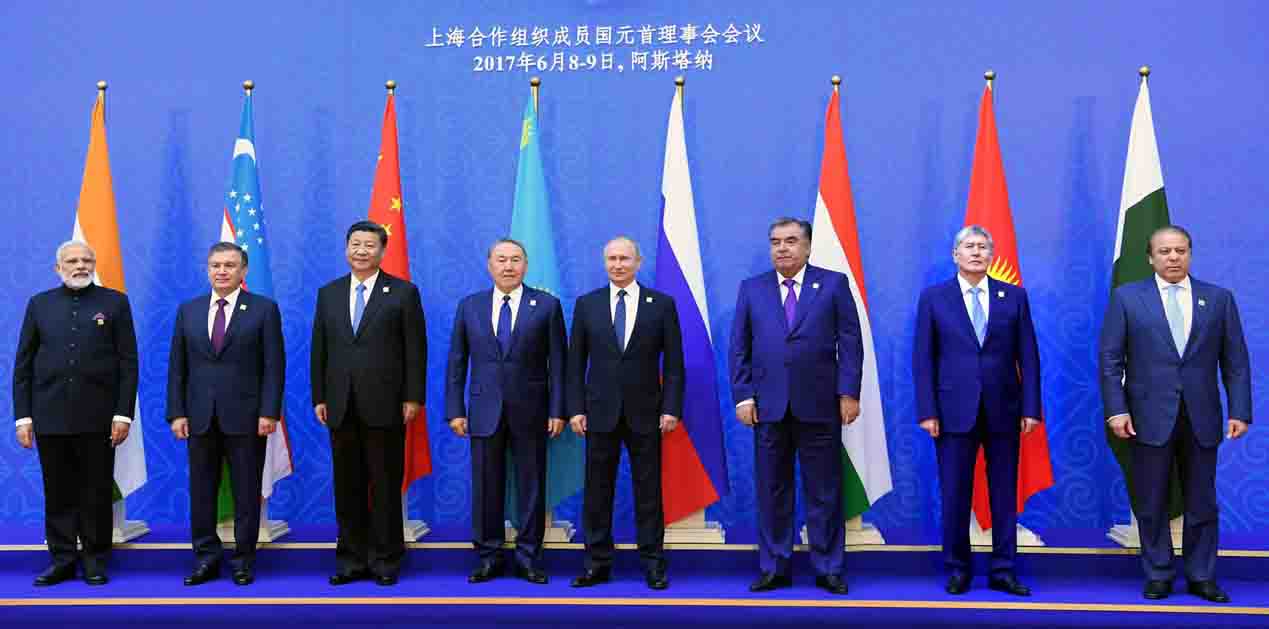
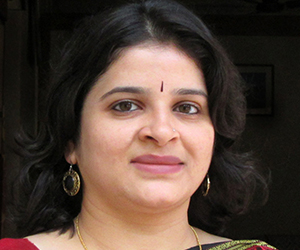



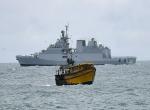
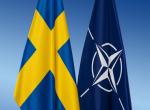

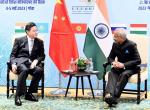
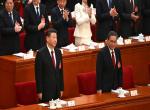
Post new comment